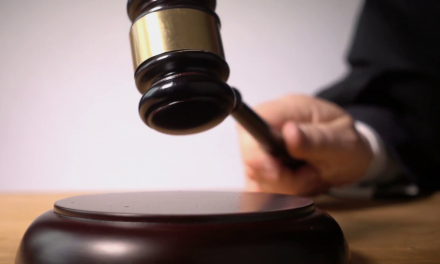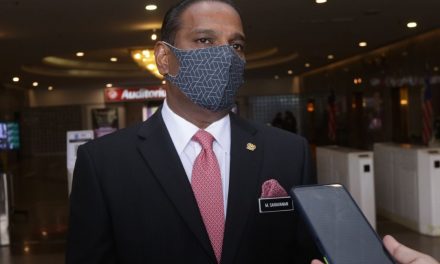KUALA LUMPUR | Those who refuse vaccinations may not have much success if they legally challenge the restrictions against them.
Experts believe that if Putrajaya bars those who have yet to be inoculated from taking public transport or civil servants from coming into office, the law is unlikely to side with the anti-vaxxer.
Lawyer Mohamed Haniff Khatri Abdulla said courts would view the issue as a policy decision by the executive.
Judges, he said, would dismiss the case on grounds that it could not interfere with the role of the elected branch of the government.
He said claims of discrimination by anti-vaxxer groups would not stick as it was the government’s right to make policies.
“They may win battles on Twitter but when it comes to justifiable policies, the courts will not interfere. The rights of the individual would be superseded by the rights of the majority,” he said, adding that matters related to the prerogative of the king and policies by the executive could not be justiciable.
“At the same time, not being able to take a train or an e-hailing ride will not eliminate your fundamental right to choose not to be vaccinated.”
He said the assumption was that the government would be democratic and weigh the argument on both sides.
“If they are lucky, they may get to cancel some (restrictions), but chances are slim because Malaysia’s system of governance is based on the separation of the judiciary, executive, and the legislative bodies,” he told the New Straits Times.
On Aug 26, Parti Bumi Kenyalang president Voon Lee Shan labeled the Sarawak government’s decision to allow only fully vaccinated people to work or enter any business premises as discriminatory.
Voon said he was studying the legal implications of the state government’s policies on controlling citizens’ movements and believed the state government could be brought to court as “the law should not restrict people’s liberty and movement”.
He had also called it an “apartheid policy”.
Hanif said calling it “apartheid” was inaccurate as no one was captured and given the vaccine by force, but these restrictions might curb everyday life.
“There may be cases where landlords refuse unvaccinated tenants or they may be barred by business owners from entering grocery stores.
“However, if they can prove beyond a reasonable doubt with the advent of research and scientific discovery that vaccines are a fallacy in bringing down Covid-19 hospitalization and deaths, they would have a case. But the burden of proof is very heavy on their side.”
He said alternatively if the group could prove that a majority of Malaysians rejected vaccinations, they could convince the government to reverse these laws and restrictions.
Hanif said if the government made vaccination mandatory, it could be viewed as being against the spirit of the law, discriminatory, and could be challenged in court.
He said it was better to allow anti-vaxxers to air their grouses while the relevant ministries counter the arguments with scientific data and facts.
Malaysian Muslim Consumers’ Association chief activist Datuk Nadzim Johan said it was contemplating suing the government over the different restrictions for the vaccinated and unvaccinated.
He said it would also take the government to court if Covid-19 vaccinations were made mandatory, extended to children below the age of 12, and made a requirement for schooling.
It has also initiated a judicial review challenging the emergency use of Covid-19 vaccines in Malaysia while demanding that the Health Ministry prove the efficacy of the vaccines in bringing down Covid-19 cases and deaths.
“There is no sense for us to go on this path. All we wanted was a conversation and for the Health Ministry to counter our arguments and questions with facts, including on breakthrough infections, but they just were so heavy-handed that they didn’t even bother to reply to us. People have a right to information.
“How is the system transparent, convincing, or expected to be accountable, when we don’t even have a seat at the table?”
Nadzim said the group had compiled allegations of deaths after Covid-19 vaccines and refusals by the authorities to issue compensations from the Covid-19 Debilitation Fund, after adverse events following immunizations, especially deaths.
The group said it had recorded 186 alleged deaths, and some allegedly involved breakthrough infections.









